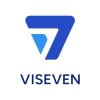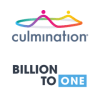Dive Brief:
- GlaxoSmithKline and Merck KGaA are ending a cancer drug partnership they set up two and a half years ago, announcing Thursday they agreed to terminate their agreement after disappointing results from two clinical trials.
- GSK had paid German Merck 300 million euros in February 2019 to gain access to the drug, called bintrafusp alfa. Another 3.4 billion euros, or about $3.9 billion at current exchange rates, were promised should the drug succeed in testing for lung cancer and hit certain regulator and commercial milestones.
- None of those milestone payments were paid, according to Merck KGaA, as data from a trial in lung cancer were negative and research by the two companies won't proceed further.
Dive Insight:
Bintrafusp alfa was part of a major push by GSK over the past few years to bolster its cancer drug research. As recently as January, the British pharma company was highlighting the treatment as a potential billion-dollar product and a key asset in its late-stage pipeline.
GSK and Merck KGaA envisioned bintrafusp alfa, a type of protein drug designed to block two cellular pathways at once, as an improvement on first-generation immunotherapies such as Merck & Co.'s Keytruda.
Those hope are now undone, after the drug fell short in testing for lung and biliary tract cancers this past January and August, respectively.
"The decision is based on the clinical trial data generated to date, most notably the previously reported results from the INTR@PID Lung 037 study, which did not replicate the encouraging data observed in earlier studies," Merck KGaA said in a statement, referring to its name for the lung cancer trial.
While the decision was not unexpected given the clinical findings, the partnership's termination is another setback for GSK in cancer. In April, the company stopped enrollment in two studies of another would-be immunotherapy after a recommendation from trial monitors. (Although other trials will continue.)
The company did recently win approval of a Keytruda rival in Jemperli, which was cleared by the Food and Drug Administration in April, but it's not clear whether the drug can compete outside of niche cancer indications. Another new treatment, the multiple myeloma therapy Blenrep, was the first of its kind to advance to market, but comes with a black box safety warning that could slow uptake. Similar, competing myeloma drugs are advancing as well.
GSK remains an active dealmaker in oncology, though. In June the company paid $625 million in cash to iTeos Therapeutics to gain access to an experimental drug that targets a protein newly of interest to cancer researchers.















